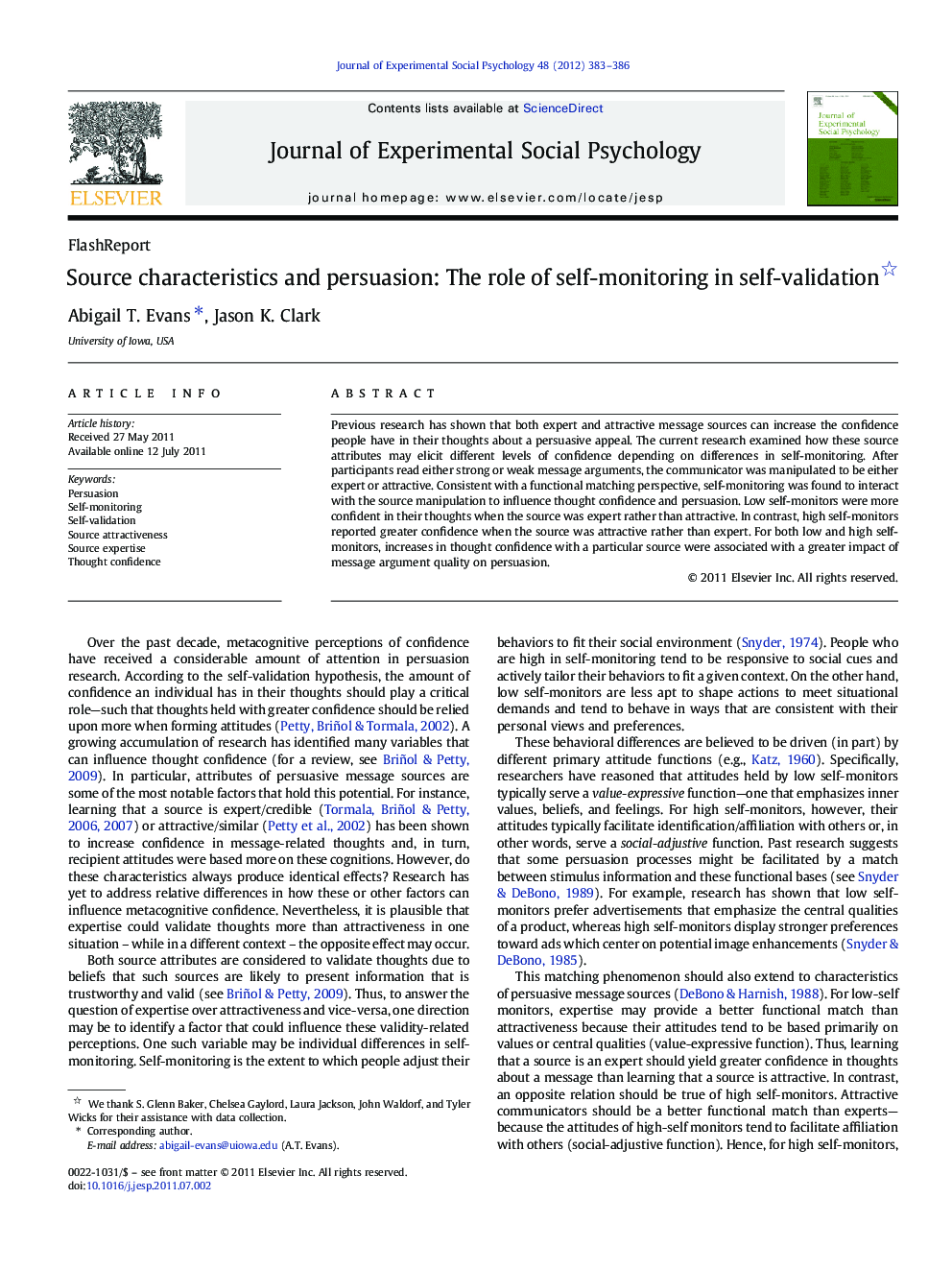| Article ID | Journal | Published Year | Pages | File Type |
|---|---|---|---|---|
| 948252 | Journal of Experimental Social Psychology | 2012 | 4 Pages |
Previous research has shown that both expert and attractive message sources can increase the confidence people have in their thoughts about a persuasive appeal. The current research examined how these source attributes may elicit different levels of confidence depending on differences in self-monitoring. After participants read either strong or weak message arguments, the communicator was manipulated to be either expert or attractive. Consistent with a functional matching perspective, self-monitoring was found to interact with the source manipulation to influence thought confidence and persuasion. Low self-monitors were more confident in their thoughts when the source was expert rather than attractive. In contrast, high self-monitors reported greater confidence when the source was attractive rather than expert. For both low and high self-monitors, increases in thought confidence with a particular source were associated with a greater impact of message argument quality on persuasion.
► Examined source characteristics, self-monitoring, and self-validation in persuasion. ► An expert validated thoughts more than an attractive source for low self-monitors. ► An attractive source validated thoughts more than an expert for high self-monitors. ► Greater thought validation was linked to attitudes that were based more on thoughts.
